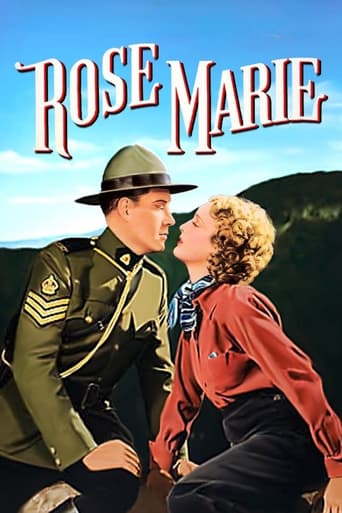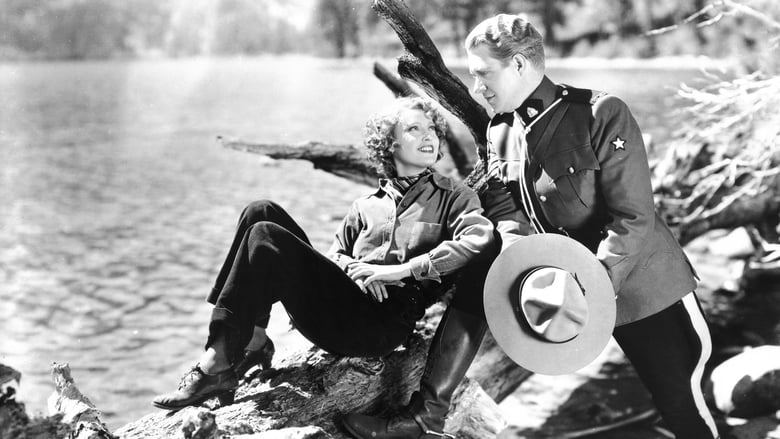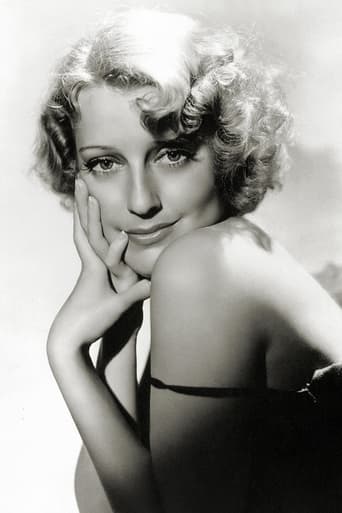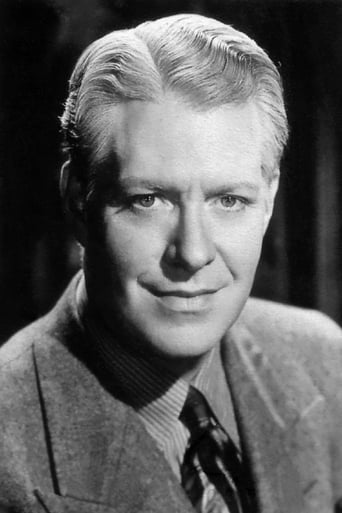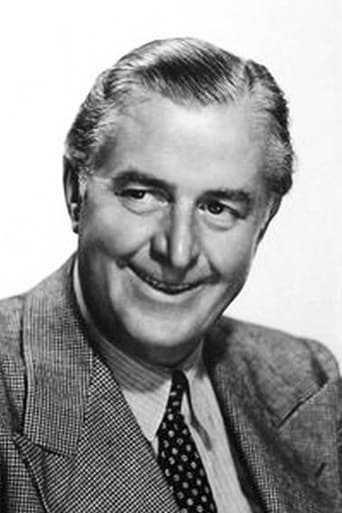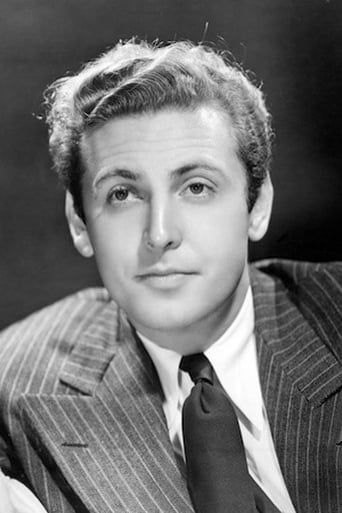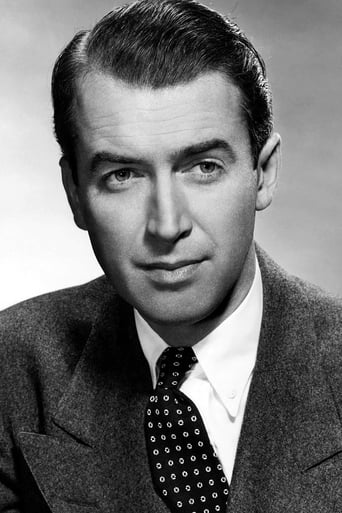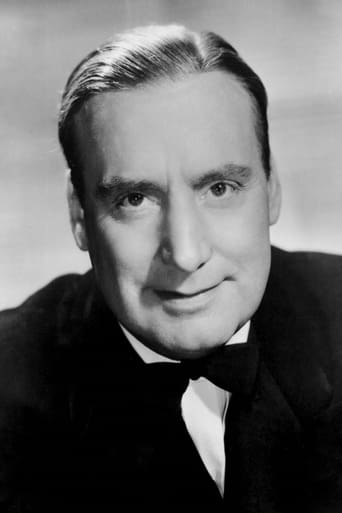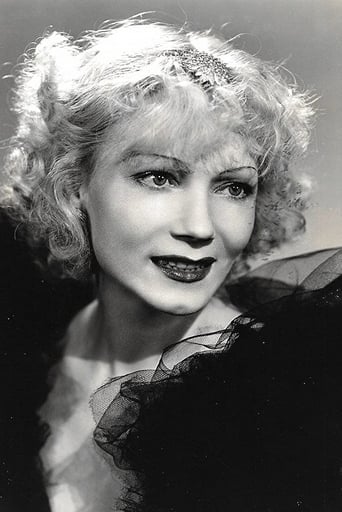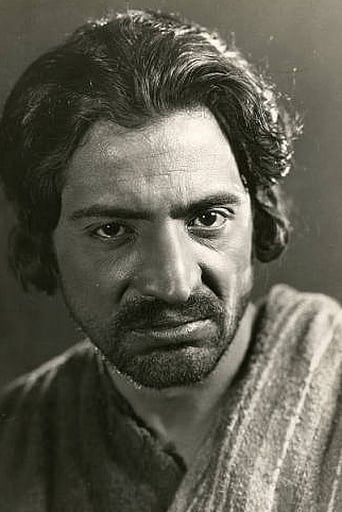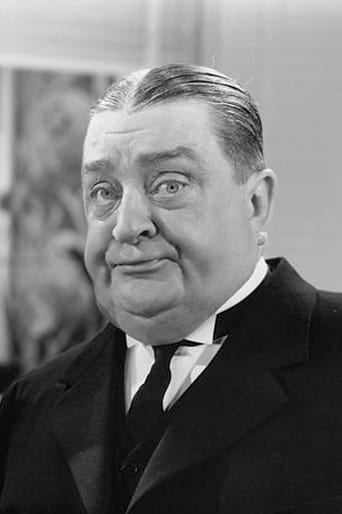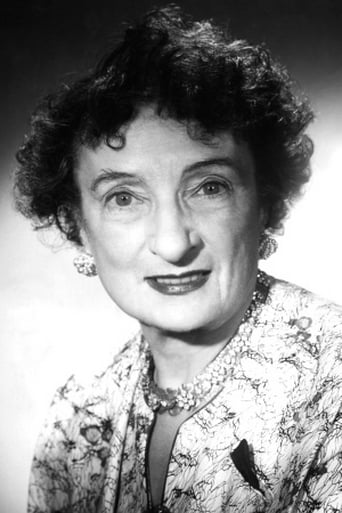Opera singer, Marie de Flor, seeks out fugitive brother in the Canadian wilderness. During her trek, she meets a Canadian mountie, Sgt. Bruce, who is also searching for her brother. Romance ensues, resulting in several love duets between the two.


Similar titles


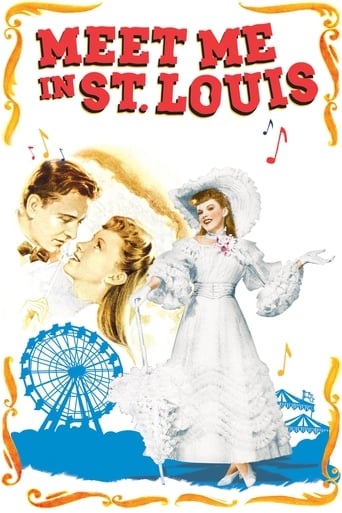
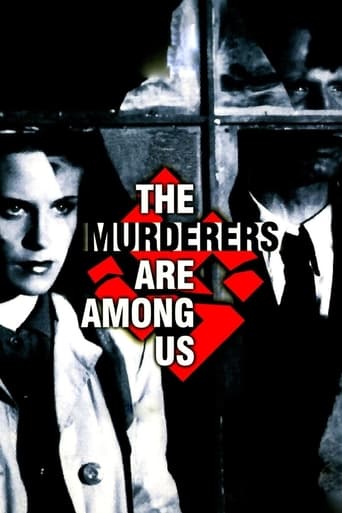
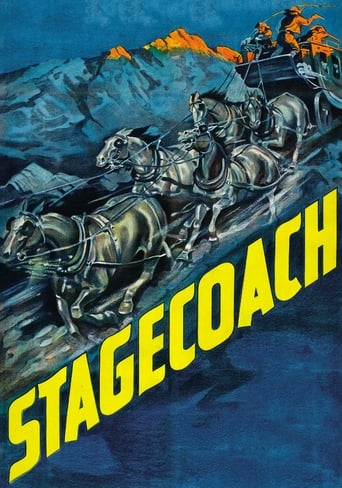
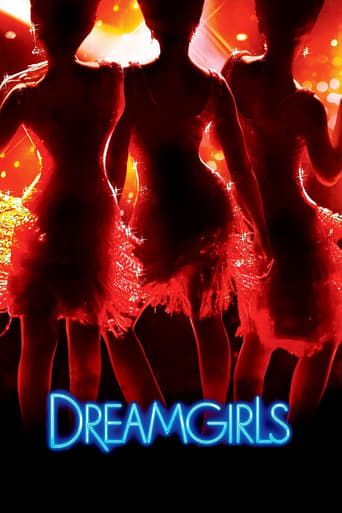
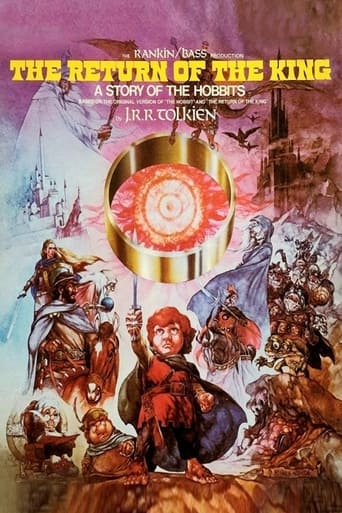
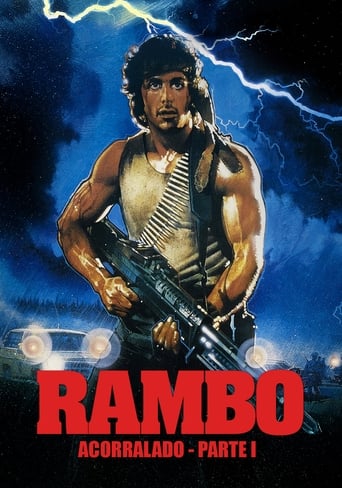
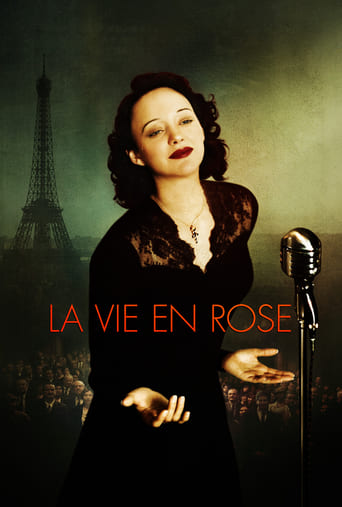
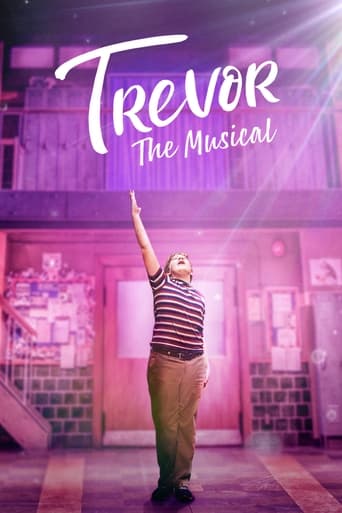
Reviews
An adaptation of the 1924 stage production of the same name, with music by Rudolf Friml, and lyrics by Oscar Hammerstein and Otto Harbach. The intricately crafted, though highly contrived, screenplay is quite different in details from the play. Thank goodness, the complicated romantic entanglements of the play were pitched in favor of a simple triangle between prima dona opera singer Marie de Flor(Jeanette), Mountie Bruce(Eddy), and Marie's escaped convict brother, Jack(James Stewart)(Before she becomes acquainted with Bruce, Marie confided that the only man she loved was her 'kid' brother Jack). The setting moves from high society opera Montreal, to the Canadian wilderness, briefly back to city opera, then back to a wilderness retreat.The plot has Marie(who dubs herself Rose Marie, to Bruce), and Bruce working cross purposes in regard to the fate of brother Jack, without realizing it for most of their time together. Marie wants to find him to provide him with some money to hopefully escape to another country, while Bruce has orders to recapture the escaped convict, now with a murder charge added to his previous conviction of robbery. When the 3 unexpectedly meet in a cabin deep in the forest, Marie and Bruce are forced to confront their conflicting purposes regarding Jack. Bruce feels, despite his love for Marie, that he must take Jack in, probably to be executed. Stewart's Jack seems remarkably cooperative and laconic about the consequences of his recapture. Perhaps this sways Marie to unexpectedly not blame Bruce too much for having used her as an unwitting guide to her brother's whereabouts and refusal to ignore his duty as a Mountie, for the sake of their love. Consequently, as the two men ride off, leaving Marie behind, she unexpectedly again sings "Indian Love Call", which Bruce had previously composed on the spot, and sang to Marie, they then both singing it later. Bruce, however, doesn't believe that her love for him can survive this emotional insult, and doesn't seek her out after depositing Jack.Marie returns to opera singing in the limelight. However, during her singing in "La Tosca", she imagines she hears bits of "Indian Love Call", and essentially has a panic attack, eventually fainting. Apparently, her agent, played by Reginald Owen, arranged for a long period of rest for her, in a wilderness cabin. Apparently, he also learned of her relationship with Bruce, as he eventually arranged for Bruce to visit her. Wouldn't you know, Bruce arrives just as Marie is reprising "Indian Love Call", and chimes in as he enters, for a dramatic ending. A similar ending is seen in the later film "Holiday Inn", when Bing Crosby's character unexpectedly arrives to reclaim his runaway girlfriend, and he chimes in, while she is singing "White Christmas".The details of the screenplay had to be very carefully thought out to prevent Marie and Bruce from realizing they were searching for the same man for cross purposes, while finding excuses for their periodic rejoining each other, after a period of separation. Finally, Bruce finds out that Marie's professional name is Marie de flor, and remembers that flor means flower in Spanish(I thought she was French?), and jumps to the correct conclusion that she must be the sister of Jim Flowers: the man he is hunting. From that time on, he is even more keen not to lose track of her.Of course, "Indian Love Call" is the 'signature' song of this operetta, just as "ah, Sweet Mystery of Life" was the signature song in their previous hit "Naughty Marietta". However, several other songs were retained from the original play. Eddy sings his "The Mounties", while at the head of a detachment of mounties. Eddy later sings "Rose Marie" to denote his growing infatuation with her. The Indians sing "Totem Tom Tom", as in the play. Two new, less important songs were added. Marie sings "Pardon Me, Madam" before she leaves for the wilderness. Later, Eddy serenades Marie from outside her cabin window, with "Just For You". Between, poor Jeanette has to try to imitate Gilda Gray, as a hoochi coochi-like girl in a raucous frontier tavern, to try to earn a few coins, after her money was stolen by her half-breed guide Boniface.Two operas are partially performed: "Romeo and Juliet", in the beginning, and "Tosca', during Marie's brief return to city life. She looks especially elegant, and her singing is especially impressive in the later, until she becomes distressed. In both operas, Alan Jones was the lead male, Eddy insisting that his solo in the later be cut. Jones would replace Eddy as the male lead , with Jeanette, in "The Firefly": another adaptation of a Friml play.The original play featured a simple French girl of the Canadian prairie and Rockies, not an eastern prima dona. It's never clear in this film what region of Canada the wilderness journeys supposedly take place in. Just the fictional Lake Shibuga is mentioned, nestled in a mountainous region... In the later(1954) remake, in CinemaScope, the screenplay would return to a closer adaptation of the original play. Whether sited in the Rockies or eastern Canada, the real resident Native Americans there didn't make totem poles, as abundantly displayed in the native village. Such were only made by tribes along the Pacific coast.
Jeanette MacDonald is "Rose-Marie" in this 1936 film also starring Nelson Eddy, James Stewart and Allan Jones. The movie borrows its title from the Rudolf Friml operetta, but it does not use the plot or many of the songs. MacDonald plays a famous opera singer named Marie de Flor whose brother (Stewart), going by the last name of Flower, has escaped prison and killed a Mountie. She leaves at once for Quebec and winds up meeting - who else - Nelson Eddy, a Mountie who recognizes her immediately and believes at first that he is helping her get to a rendezvous with a man. Meanwhile, he's falling for her himself.Nelson and Jeannette were one of the great screen teams, and even now, they have fans all over the world. Jeanette was beautiful, a good singer and a fine actress, and Nelson, while not being much of an actor, was an attractive man with a magnificent voice. Their big hit, in fact, their signature song, "Indian Love Call," is from this film, as is, naturally, "Rose-Marie." Because of the recording devices used back then and the way female singers were taught, Jeannette's lyric-coloratura suffers somewhat. Like all female singers of that era, she has a back placement for her high notes, though the middle part of her range is quite beautiful. Her obsession with Tosca - one of the opera scenes shown, and a role she also performed on stage in real life - is a curious one. She had no business singing it, and neither did the tenor, Allan Jones, who was a lyric tenor. It's for a dramatic soprano and a spinto tenor. The Gounod "Romeo et Juliette," which she sings with Jones in the beginning of the movie is much more appropriate for both of them. Eddy, on the other hand, had operatic roots, and his baritone has survived very well. They sounded wonderful together, and there was something about them that just worked, even if he was somewhat wooden. She was spitfire enough for both of them, and it made a nice contrast. My favorite part of the film is when, after her guide steals her money, Marie goes looking for the job as a singer in a honky tonk café and tries to do "Some of these Days," which she sings operatically while attempting to copy the hoochie-coochie movements of the café's resident singer.Stewart was slowly ascending the scale to stardom, getting better and better roles - he has a couple of big scenes in this film. He's boyish, good-looking and very effective.Today I suppose these films seem very campy, and they've surely been parodied over and over again. However, the music is enjoyable, Nelson and Jeanette are treasures, and one can't help but marvel, amidst the insanity of today, what a much simpler time it was. People were able to be lifted out of themselves for a little while with fantasy and beauty. These movies must have been doing something right. Seventy-plus years later, we're still enjoying them.
The two stars were before my Mother's time. And yet they light up the screen like no others. I first saw this movie about two months ago. I simply could not get over how sensational it was. And the talent of these people. I can't think of anyone who can compare to them. The singing is gorgeous. Jeanette MacDonald is gorgeous.But the most amazing thing is when the two stars get together on the screen. Something absolutely magical happens. I searched for and bought the movie (not an easy task). Now, all of my friends are blown away by what happens when the two leads are on camera together. (Oh, so this is what they mean by chemistry.) It is inexplicable, simply amazing. My absolute favorite movie ever.(I think I could watch it every day and not get tired of it.) My music loving neighbor says that Nelson Eddy is singing very complicated harmony. I suppose that's true but the results (and after all, it's results that count) are wondrous. Great voices, great music, love.Just a romantic, beautiful, emotionally fulfilling movie.
The characters fulfil the usual requirements for a formula story. Rose Marie begins as a vitriolic,hire-fire personality;Serjeant Bruce does his job,but not without misgivings."It isn't always pleasant.The sad thing (or paraphrase)is when it hurts those you love." And he is wooden and stiff. Of course,he is! He's a policeman! This film offers quite a lot besides: operas from Gounod and Puccini, and Bruce,quoting "This our life,exempt from public haunt,finds sermons in stones,books in the running brooks..." from "As you like it"...hardly the stern Mountie who appears in the song. Leading up to this song,"The Mounties," there is a particularly robust,vigorous show of horsemanship---jumping brooks,hurdles,in a specially virile setting.And in the formula, their characters alter by the ending. Eddy is in excellent voice, probably at his best,hitting a high G in "Just for you", and I would challenge any baritone to accomplish, from head to chest tone, the portamento or change from F to lower A flat in "Indian Love Call". One criticism is that Eddy's moods change with very little transition,and there are many things not PC or legal these days. A socially oriented dialog occurs when she exclaims"I thought all this (the Nature) would make you more merciful". Bruce:"Don't ever think that Nature is merciful.Nature is the cruelest policeman.When an animal sickens, the others turn on him and kill him"There are good supporting roles for Reginal Owens as Myerson,Regas as the guide,and Una O'Connor as Rose Marie's maid. In all this is very good entertainment and beats much that one sees or hears these days.
